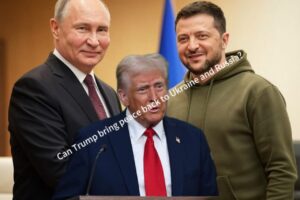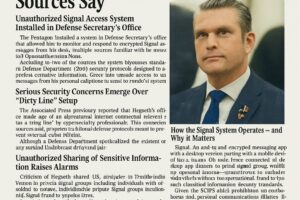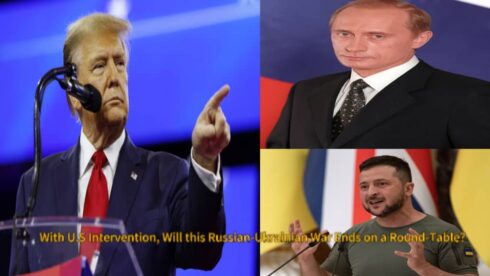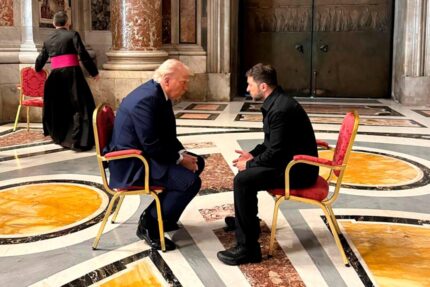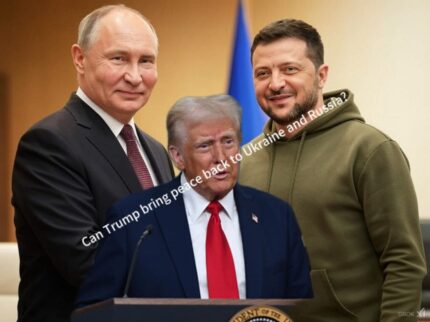Two senior U.S. officials are traveling to Saudi Arabia to initiate peace negotiations between Russia and Ukraine. The visit underscores Washington’s strategic commitment to ending the prolonged conflict, which has had devastating global consequences, from energy crises to geopolitical instability. The officials, whose identities remain undisclosed, are expected to engage with Saudi counterparts and representatives from both Moscow and Kyiv.
This diplomatic move comes amid growing international pressure to broker a ceasefire or a framework for negotiations. The United States (U.S) is leveraging Saudi Arabia’s unique position as a mediator, given its strong ties with both Russia and Western allies. Riyadh has previously hosted back-channel talks, proving its capacity to facilitate high-level negotiations. The upcoming discussions are seen as a litmus test for whether diplomatic efforts can gain traction in a war that has defied multiple ceasefire attempts.
Why Saudi Arabia? The Kingdom’s Evolving Role in Global Diplomacy
Saudi Arabia has increasingly positioned itself as a global mediator, moving beyond its traditional role as an energy powerhouse. Crown Prince Mohammed bin Salman (MBS) has sought to elevate the kingdom’s status by engaging in diplomatic efforts across multiple conflict zones, including Yemen, Sudan, and now Ukraine. Riyadh’s strong economic ties with Russia, coupled with its security cooperation with the U.S., make it a rare neutral ground for negotiations.
By hosting these talks, Saudi Arabia strengthens its diplomatic clout and underscores its ambition to play a greater role in global security affairs. The kingdom has maintained a balanced stance on the Ukraine war, avoiding direct condemnation of Russia while supporting humanitarian efforts. Its ability to bring both parties to the table could mark a turning point in global peace efforts, potentially reshaping alliances and economic partnerships.
U.S Strategic Interests: Ending the War While Containing Russia
For Washington, facilitating peace talks is not just about humanitarian concerns—it is also a strategic move to contain Russia’s influence. The prolonged war has strained global markets, driven inflation, and deepened divisions between the West and the Global South. By pushing for negotiations, the U.S. aims to stabilize global energy prices, reduce military spending on Ukraine, and prevent Russia from consolidating territorial gains.
Additionally, the U.S. is keen on countering China’s growing influence in peace efforts. Beijing has positioned itself as a mediator, having brokered discussions between Saudi Arabia and Iran. By spearheading negotiations in Riyadh, Washington reasserts its leadership in global diplomacy while ensuring that any potential settlement aligns with Western interests rather than being dictated by China or Russia.
Russia’s Calculations: Weighing the Costs of Continued War
Moscow’s participation in the talks signals that Russia is at least open to discussing potential compromises. However, the Kremlin’s stance remains unclear—whether it seeks a genuine pathway to peace or merely wants to use negotiations as a tactical pause to regroup militarily. Russian President Vladimir Putin has repeatedly insisted that any settlement must recognize Russian territorial claims, a condition that Kyiv has firmly rejected.
Economic pressures may also be influencing Russia’s willingness to negotiate. Sanctions, declining military resources, and growing domestic unrest could make prolonged war increasingly unsustainable. By engaging in talks, Russia could seek to ease international pressure while securing a settlement that preserves its strategic interests. Yet, whether Moscow is willing to make meaningful concessions remains a critical question for the success of these negotiations.
Ukraine’s Stance: Navigating Diplomacy Without Compromising Sovereignty
Ukraine faces a delicate balancing act in these talks. President Volodymyr Zelensky has consistently maintained that no peace deal should compromise Ukraine’s territorial integrity, including Crimea and the Donbas region. However, with Western military aid facing political roadblocks and ongoing battlefield challenges, Kyiv may be under increasing pressure to consider diplomatic solutions.
At the same time, Ukraine is wary of any settlement that might freeze the conflict without securing long-term security guarantees. Previous agreements, such as the Minsk Accords, failed to prevent further aggression. As a result, Kyiv will likely demand ironclad assurances from both the U.S. and NATO to prevent a future resurgence of Russian hostilities. These talks could serve as a crucial test for how much international support Ukraine can count on moving forward.
What’s Next? Challenges and Prospects for a Breakthrough
While these negotiations mark a significant diplomatic step, achieving a concrete breakthrough remains highly uncertain. Key sticking points—such as Russia’s territorial demands, Ukraine’s security concerns, and U.S.-Russia relations—pose formidable challenges. The success of the talks will depend on whether the parties involved can find common ground without compromising their core interests.
Nevertheless, the diplomatic engagement in Saudi Arabia offers a rare opportunity to de-escalate tensions and explore potential pathways to peace. If progress is made, it could set the stage for further negotiations involving European and Asian stakeholders. Conversely, if the talks fail, the war may continue unabated, with geopolitical divisions deepening further. The world watches closely as Washington, Riyadh, Moscow, and Kyiv attempt to chart a path forward.




